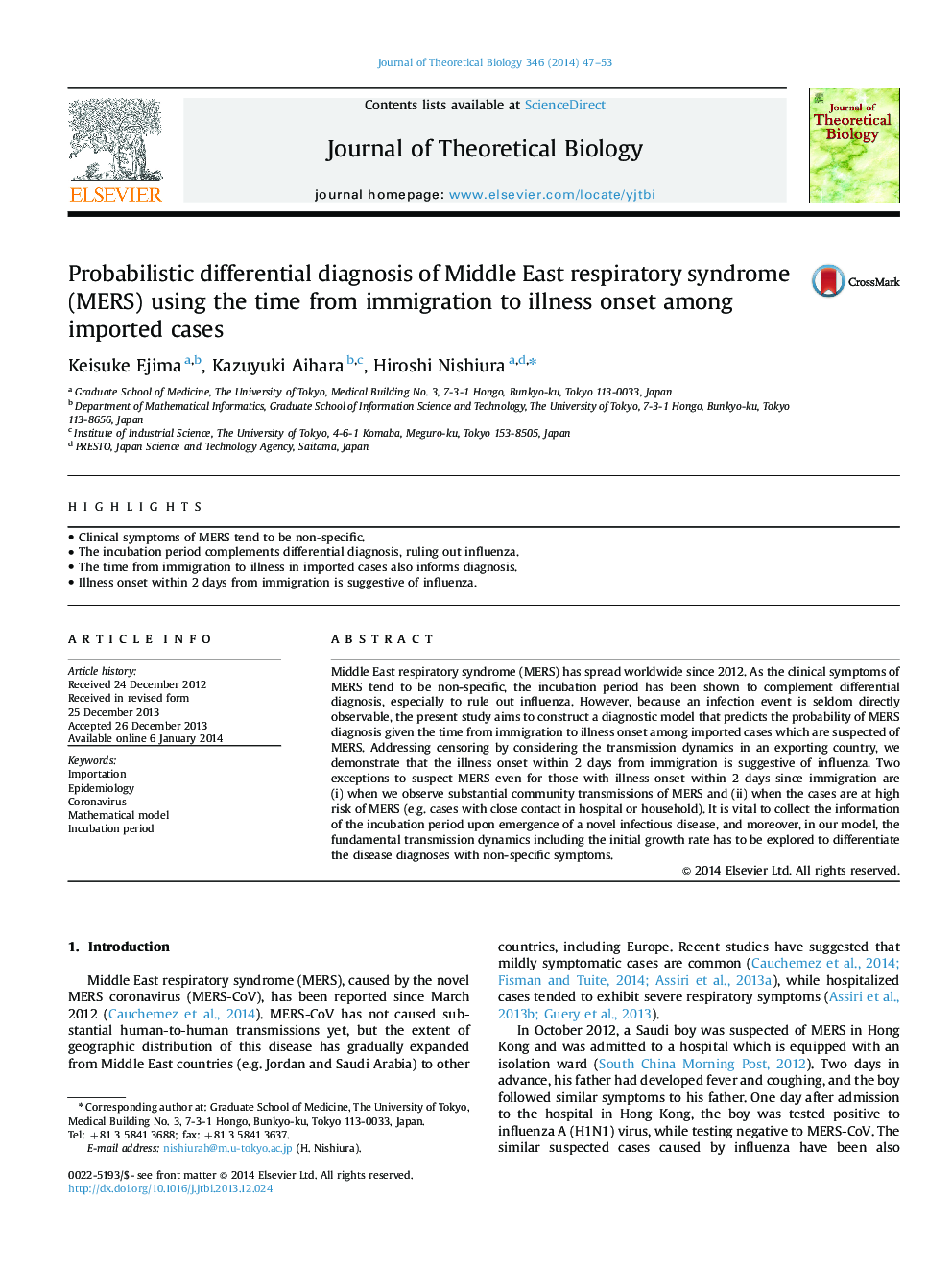| Article ID | Journal | Published Year | Pages | File Type |
|---|---|---|---|---|
| 6370627 | Journal of Theoretical Biology | 2014 | 7 Pages |
Abstract
Middle East respiratory syndrome (MERS) has spread worldwide since 2012. As the clinical symptoms of MERS tend to be non-specific, the incubation period has been shown to complement differential diagnosis, especially to rule out influenza. However, because an infection event is seldom directly observable, the present study aims to construct a diagnostic model that predicts the probability of MERS diagnosis given the time from immigration to illness onset among imported cases which are suspected of MERS. Addressing censoring by considering the transmission dynamics in an exporting country, we demonstrate that the illness onset within 2 days from immigration is suggestive of influenza. Two exceptions to suspect MERS even for those with illness onset within 2 days since immigration are (i) when we observe substantial community transmissions of MERS and (ii) when the cases are at high risk of MERS (e.g. cases with close contact in hospital or household). It is vital to collect the information of the incubation period upon emergence of a novel infectious disease, and moreover, in our model, the fundamental transmission dynamics including the initial growth rate has to be explored to differentiate the disease diagnoses with non-specific symptoms.
Related Topics
Life Sciences
Agricultural and Biological Sciences
Agricultural and Biological Sciences (General)
Authors
Keisuke Ejima, Kazuyuki Aihara, Hiroshi Nishiura,
